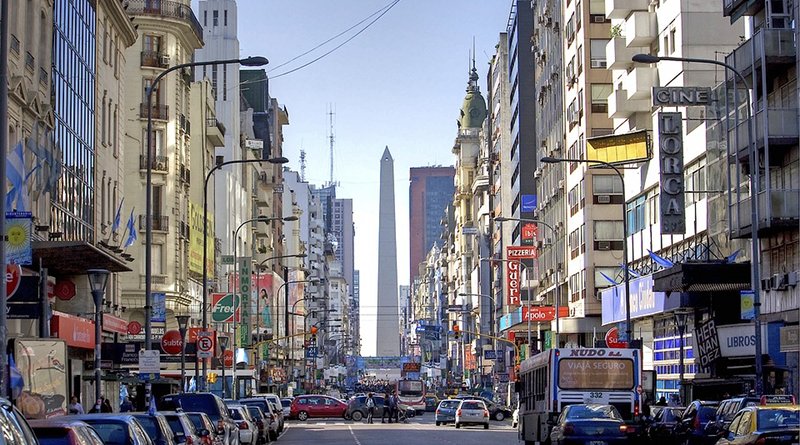Argentina In The Multipolar Order – OpEd
By Juan Martin González Cabañas *
This article aims to address Multipolarity within a possible future Argentine foreign policy with autonomous / sovereign vocation.
The current international context is presented paradoxical and complex … long time ago global order was not as volatile, confusing and dynamic… But as this is true, it is also true that for a long time it was not presented with such ample margin for the development of a foreign policy with an autonomous vocation, and capacity building for Argentina (economic and national power capacities) as well as other emerging countries from the peripheral areas of the world system. [1] This is due to the rise of emerging powers and others that resurface on the international stage. [2]. Processes verified in information and facts.
The rise of a new constellation of powers will imply a gravitational change in global force relations and their distribution. This is what we call Multipolarity: Multiple power centers distributed in different geographies. This implies multiple alternatives for Argentina in its insertion and international cooperation; it means a greater field of action in the global scenario with its respective transfer in obtaining objectives of national interest.
The dynamics of the interactions between these different poles, will condition the global board where Argentina is inserted… although this board presents multiple challenges, as are always the competitions between power blocks… also presents opportunities… This context presents to Argentina new multiple alternatives of Association, and patterns of cooperation … This is known as Multiple Alignment: This implies that… No Smart Country accommodates itself with a single power; countries seek to maintain ties with all major powers, hoping to take maximum advantage of their interactions.[3]
Then according to this analytical framework:
How should we propose an autonomous and sovereign foreign policy that seeks the development and prestige of the country? What opportunities to look for? How to propose these approaches? What would an Argentine Multipolar foreign strategy be like? How to discursively communicate these issues in an election campaign?
This are the proposals of changes in praxis and perception, which must not only be changed in a future government, but must also be communicated to the citizens, the electorate:
From the political praxis it would imply breaking with the stage of dependence and absolute and unrestricted subordination towards the US and other European Atlantist powers that began in 2015. An intelligent foreign insertion is not based on making unilateral carnal concessions [4] that reinforce the peripheral position of our country. The same principle applies to financial organizations and groups.
But first we must change our perceptions and break with the paradigm in our country, spread by its elite, that the world is only the US and Europe, and that having a good global insertion is only that which is done with the US and Europe, under its approval and under its parameters, ergo making concessions all the time, in all areas.
In a global multipolar concert there is a world full of opportunities … breaking these discourses and paradigms, the concept of multipolarity must be imposed as a strategic and discursive category for the execution of a foreign policy with autonomous vocation that seeks to obtain national and continental interest of the Latin / South American Patria Grande.
*Juan Martin González Cabañas is a researcher and analyst at Dossier Geopolitico, an Argentina-based think-tank offering a South American perspective on global issues.
References:
[1] On a map with tectonic plates that are rearranged, with a US that seeks to reconfigure and revise the same international order it forged, and a European Union in a “geopolitical limbo” without a unified foreign strategy, without defining whether It will be a player or a board, in this context opportunities arise, a geopolitical market for a large number of countries seeking new forms of association and other patterns in international relations.
[2] Today, new poles of the international board resurface especially the Far East and Eurasian regions, homes of historical empires and civilizations such as Turkey, Iran, India, China and Russia. And other emerging countries such as Indonesia, Vietnam, and Singapore.
[3] https://www.vision-gt.eu/news/old-roads-and-new-paradigms-on-the-last-bri-summit/
[4] Peripheral Unilateralism: Tokatlian’s conceptualization to define the bilateral relationship of the Macri government with the United States. A pattern of subordination relationship marked by a dye even more dogmatism than in other eras, despising certain diplomatic, multilateral traditions of the country, arguing that by offering concessions to the powerful one can obtain one’s own interests.
https://www.elcohetealaluna.com/el-unilateralismo-periferico-concesivo/
https://www.clarin.com/opinion/relaciones-ee-uu-nueva-etapa_0_rka7ze-UM.html

